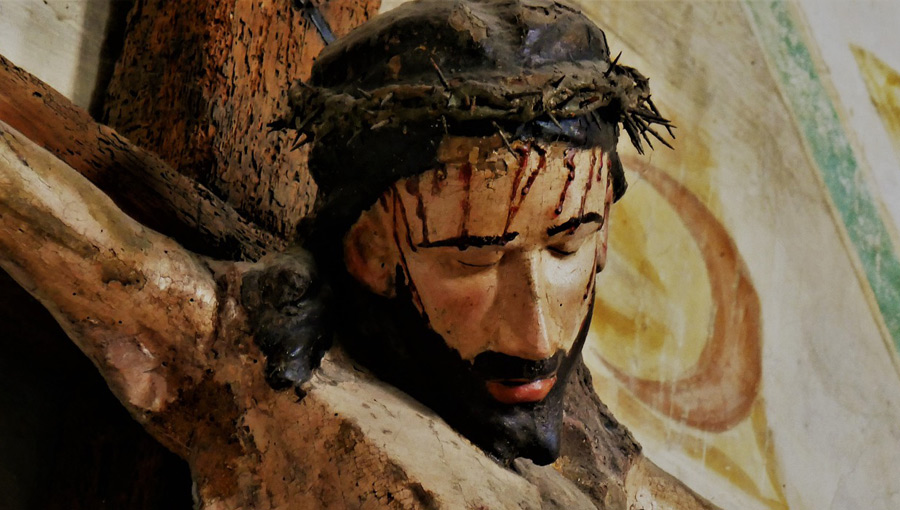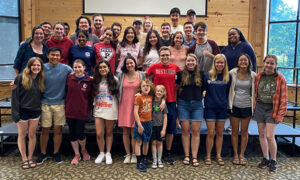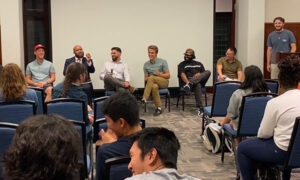Forgiveness Is A Lifestyle, Not An Event
By Cory Lotspeich, Ministry Director CU Martus
In Jesus’ sermon on the mount, He sums up His teaching on prayer in Matthew 6:12-15 by saying, “and forgive us our debts, as we also have forgiven our debtors. And lead us not into temptation, but deliver us from evil. For if you forgive others their trespasses, your heavenly Father will also forgive you, but if you do not forgive others their trespasses, neither will your Father forgive your trespasses.”
It almost seems odd to end your teaching on prayer by asking God for forgiveness and forgiving each other as we have been forgiven. We also see a conditional statement concerning forgiveness, “if you do not…neither will your Father…”

Forgiveness, for the Christian, is proportional to our posture before the Lord and others. This means if we live in forgiveness, there will be unity in two directions— with the heavenly Father and with each other. This is not to negate or undermine the pain, difficulty, or heartache behind the reasons why we need to forgive, however, our role, as Jesus calls and teaches us, is to forgive.
I often use this metaphor about forgiveness—it is a lifestyle, not an event. Here’s why.
“Then Peter came up and said to him, ‘Lord, how often will my brother sin against me, and I forgive him? As many as seven times?’ Jesus said to him, ‘I do not say to you seven times, but seventy-seven times’” (Matthew 18:21-22). We’re to forgive more than once, if necessary. We’re to forgive, not only in a moment but at all times.
Unforgiveness is a destroyer. It steals our joy (Prov 14:10); it defiles us and others (Heb 12:15); it makes us unholy (Matt 6:13); it breaks unity and also spreads slanderous speech of others (Psa 133, Prov 16:28). Unforgiveness is a healthandage.com to unity, as it puts us “out of place” with God and others and prevents us from having heaven on earth (Matt 6:10, 14-15, Luke 15:25-32).
On the contrary, rightly practiced, forgiveness brings about unity, joy, and holiness. This is seen in Acts 1:12-14; 2:1-4.
“Then they returned to Jerusalem from the mount called Olivet, which is near Jerusalem, a Sabbath day’s journey away. And when they had entered, they went up to the upper room, where they were staying…All these with one accord were devoting themselves to prayer, together with the women and Mary the mother of Jesus, and his brothers…When the day of Pentecost arrived, they were all together in one place. And suddenly there came from heaven a sound like a mighty rushing wind, and it filled the entire house where they were sitting. And divided tongues as of fire appeared to them and rested on each one of them. And they were all filled with the Holy Spirit and began to speak in other tongues as the Spirit gave them utterance.”
This practice of forgiveness bringing unity is also seen in the Moravians of the 18th century. Count Zinzendorf was leading refugees from Moravia and Bohemia (present-day Czech Republic) who settled at Herrnhut, Germany. They were a community bitterly divided against each other, and through a series of prayer meetings, they were all convicted by the Holy Spirit, which led them to repent and be reconciled with each other.
It was from these events that they would later lead a 100-year, 24/7 prayer in teams of two. They would also sell themselves into slavery, and as the ships were leaving the dock they would cry, “may the Lamb of God receive the reward of His suffering.” It was through forgiveness and unity, as we see in the Lord’s prayer, that enabled the Moravians to have such a major impact to transform the world and spread the gospel.
The power of forgiveness to bring about unity is not an ethereal truth; rather, it has a major impact on our walk and holiness before God, our being in right relationships with each other, and our fruitfulness and effectiveness in ministering the gospel in power.
As the title of this devotional suggests, I hope and pray that you too embrace forgiveness, that you may also see the powerful effects of it in your own life and within the life of other fellow Christians, neighbors, and even your enemies. I encourage you now to make this prayer your own and speak it out loud. Be specific in who you are forgiving and why you are forgiving them.
Father, I pray that Your Holy Spirit will reveal to me anyone I need to forgive. I choose to forgive them for the pain, and the effects of that pain, they have caused me in my life.




